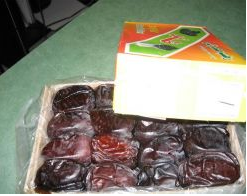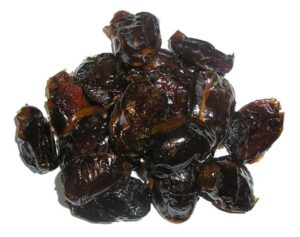Understanding Shelf Life and Storage
Dried apricots are a popular snack known for their sweet flavor and chewy texture. They are not only delicious but also packed with nutrients, making them a great addition to your diet. However, like all food products, they have a shelf life. In this article, we will explore whether dried apricots go bad, how to store them properly, and tips for maximizing their freshness.

What Are Dried Apricots?
Dried apricots are made by removing the moisture from fresh apricots, which concentrates their flavor and extends their shelf life. They are rich in vitamins A and C, potassium, and dietary fiber. Dried apricots can be enjoyed on their own, added to trail mixes, or used in various recipes, from salads to baked goods.
Do Dried Apricots Go Bad?
Understanding Shelf Life
Dried apricots do not spoil in the same way that fresh fruits do, but they can lose quality over time. The shelf life of dry apricots depends on several factors, including how they are stored and whether they are opened or unopened.
– Unopened Packages: When stored in a cool, dry place, unopened packages of dry apricots can last for 6 to 12 months past the printed expiration date.
– Opened Packages: Once opened, dried apricots should ideally be consumed within 3 to 6 months for the best flavor and texture.
Signs of Spoilage
While dried apricots can last a long time, they can still go bad. Here are some signs to look for:
– Off Smell: If the dry apricots have a sour or rancid smell, it’s best to discard them.
– Discoloration: A color change, such as darkening or fading, can indicate that the apricots are no longer fresh.
– Texture Changes: If the apricots become excessively hard or develop a sticky texture, they may have gone bad.
– Mold: Any visible mold is a clear sign that the dry apricots should be thrown away.
How to Store Dried Apricots
Proper storage is key to extending the shelf life of dry apricots. Here are some tips:
1. Keep Them in an Airtight Container
Once opened, transfer dry apricots to an airtight container to prevent moisture and air from degrading their quality. Glass jars or resealable plastic bags work well for this purpose.
2. Store in a Cool, Dark Place
Dry apricots should be stored in a cool, dark place away from direct sunlight. A pantry or cupboard is ideal. Avoid storing them near heat sources, such as stoves or ovens.
https://driedfruitexporter.com/the-best-dried-fruits-for-fiber/
3. Refrigeration for Extended Freshness
For even longer storage, consider refrigerating dry apricots. While this is not necessary, it can help maintain their quality for an extended period. Just ensure they are in an airtight container to prevent moisture absorption.
4. Freezing for Long-Term Storage
If you want to keep dried apricots for an extended period, freezing is an option. Place them in a freezer-safe bag or container, and they can last for up to a year in the freezer. When you’re ready to use them, simply thaw them at room temperature.



